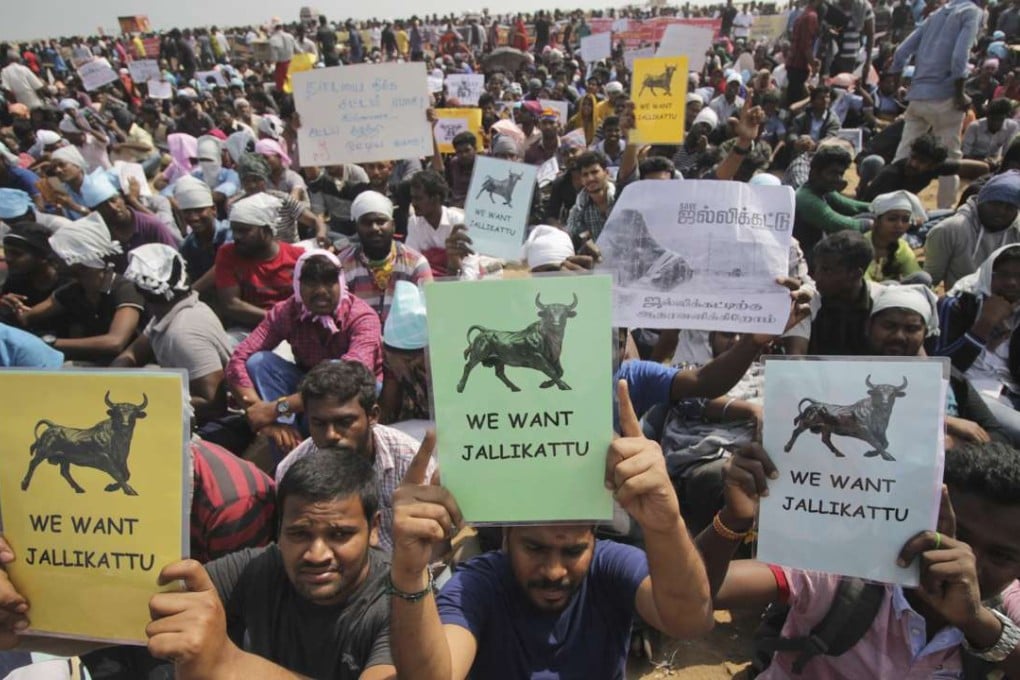Violence in India as anger over bull-fighting ban spreads to Singapore
Tens of thousands of protestors rally against a court ruling to stop ‘jallikattu’, but some observers say the issue is a rallying cry for deeper resentments

Widespread demonstrations in the Indian state of Tamil Nadu demanding the resumption of a banned bull-taming sport are a flash point for much deeper anti-establishment resentments, some observers said Monday, as violence broke out for the first time since protests began last week.
The state government on Monday moved to quell the tens of thousands protesting by enacting legislation to circumvent a 2014 ban on the seasonal sport of “jallikattu” by India’s top court. But that did not appease protesters, who torched a police station and pelted officers with rocks after being forcibly removed from a beach in the state capital of Chennai where they had been camped since early last week.

The protests have also resonated with segments of the Tamil diaspora scattered around the world. In Singapore, where foreigners are not allowed to stage public protests, a weekend event organised in support of events in Tamil Nadu triggered a sharp reaction from the police.
Jallikattu is a sport that involves adult males subduing angry bulls by grabbing or riding them. The event is said to be thousands of years old and usually takes place in villages in conjunction with the Pongal harvest festival.
Indian officials probe possible track tampering after latest rail disaster kills 32
India’s Supreme Court first banned the sport in 2014. But in January 2016, Prime Minister Narendra Modi’s government made amendments to the legislation allowing the practise. In July, the court heard a petition against the change that was brought on by the country’s Animal Welfare Board, and upheld its original ban.